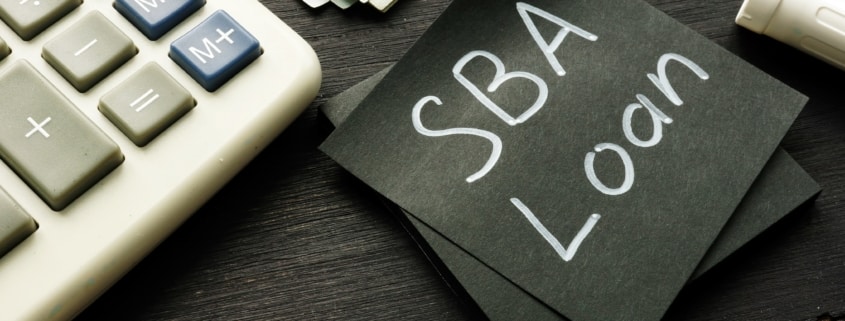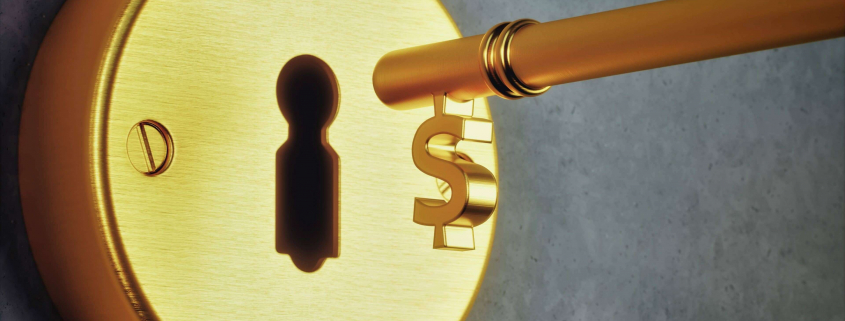Any small business owner who spends time searching for small business loans–both through banks and online–has likely come across the SBA 7(a) loan program. It’s one of the more popular small business lending options out there. With that, many small business owners look to the Small Business Administration (SBA) to help with financing.
One way the SBA helps small business owners is through their Loan Guarantee Program. Here, you’ll learn what you need to know about the SBA 7(a) loan program and the requirements for approval.
What is the SBA loan program?
SBA loans don’t actually go through the government. Instead, the SBA offers guarantees to participating lenders, including traditional banks, credit unions, online lenders and private lenders.
The goal is to make small business loans less risky for these lenders. This means that more business owners can secure funding to help grow their businesses.
Guarantees typically cover anywhere from 50 to 85 percent of the total loan amount, depending on the loan. The SBA has a variety of loan options, including the 7(a) program, the 504 program, microloans and disaster loans.
However, the SBA 7(a) program is the focus here.
What is a 7a loan?
SBA 7(a) loans are some of the most popular options available for small business owners. In the 2019 fiscal year, over $23 billion in loans saw approval. An average loan was for just under $450,000.
The flexibility of the 7(a) loan program makes it popular among small business owners. 7(a) loans are guaranteed up to $5 million. For loans up to $150,000, the SBA guarantees 85 percent. The SBA guarantees 75 percent for loans over $150,000, up to $3.75 million on the $5 million maximum loan amount.
If you default, the SBA will pay out the guaranteed amount. It’s one way the administration removes some of the default risks from lenders. This allows them to offer more attractive repayment terms.
Many small business owners would likely struggle to secure financing from traditional financial institutions without the SBA Loan Guarantee Program.
What are the SBA 7a loan terms and interest rates?
SBA loan terms are set with the long-term goals of small business owners in mind. Repayment terms are often based on your particular financial situation. However, most of these are paid back via monthly installments.
The set terms are as follows:
- Real estate: up to 25 years
- Equipment: up to 10 years
- Working capital and inventory: up to 10 years
Another benefit of an SBA loan is that it sets a maximum with lenders on interest rates. Base rates are tied to Prime Rates, benchmark interest rates and additional spread rates.
The spread rate varies depending on the loan amount and the term. Typically, higher loan amounts with shorter terms have slightly lower spread rates.
The SBA has specific spread rates they use. But, the rates can change as the market rates do over time.
Are there fees involved with the SBA 7(a) loan program?
While you typically won’t find origination, application and processing fees with SBA loans, there still are fees to consider.
These fees can include:
- SBA loan guarantee fees (which vary depending on the size of the loan; but they only apply to the guaranteed amount)
- Credit authorization fees
- Packaging fees and closing costs
- Appraisal fees for real estate related loans
- Late payment penalties
- Prepayment penalties which apply to loans longer than 15 years that are prepaid within the first three years
The guarantee fee is the highest of all associated SBA loan fees. Keep these fees in mind as you figure your total payment amount.
The basics of qualifying for SBA 7(a) loans
The SBA has several eligibility requirements you must meet to qualify for any of their loans, including the 7(a). Since these are popular loans, you should understand the different requirements before you apply.
First, your business must be for-profit and based within the United States or its territories. Also, the SBA has size standards they use to ensure that the definition of small business gets met–since it varies across industries. This standard is generally a combination of employee size and annual average receipts.
Second, the SBA wants you, as the small business owner, to have a stake too. So, they require that you invest your own time and money into your small business. Also, eligibility rules state that you need to have been in business for a sufficient amount of time, typically a few years.
Finally, your business must be eligible for a loan. Some are not including real estate investment firms, rare coin dealers, companies involved in speculative activities, and companies where gambling is the primary activity, among others.
What are the SBA 7(a) loan program requirements?
Your job isn’t over yet, even once your business is eligible for a loan application. You need to meet the loan requirements, too. The SBA requires you to submit information on your “personal background and character”. This includes criminal history (if any), your citizenship status, work history in the form of a resume, past addresses, and other items as well.
You also need to provide a business plan. A solidified business plan goes a long way towards showcasing the strength of your business and your plans for the future. Don’t forget to include detailed information on how you’ll use your loan.
Other documents required are your business financial statements. You need to show your revenue and profitability. The SBA typically approves businesses with at least $100,000 in revenue each year. You should also provide a listing of any debts and your debt schedule, which can help highlight your expected cash flow.
Your personal credit score is important. The SBA and lenders will typically look for a FICO credit score above 650.
Finally, there is some personal risk involved with 7(a) loans too. The SBA requires anyone who owns over 20 percent of the business signs a personal guarantee on the loan.
While each lender is different and requirements vary depending on your situation, keep these requirements in mind as you move through the process.
Types of loans in the 7(a) program
Within the 7(a) loan program, there are different loan options beyond the 7(a) standard loan you can explore.
The 7(a) Small Loan program has all the requirements of the standard 7(a) loan with one significant difference: it offers a maximum loan amount of $350,000.
SBA Express loans are designed with quick turnarounds in mind. They have a maximum loan limit of $350,000. Note that the SBA guarantees 50 percent of the loan amount.
SBA Export Express loans are directed at exporters for lines of credit up to $500,000. The SBA guarantees 90 percent for loans up to $350,000 and 75 percent for amounts beyond that. It’s yet another option with quick turnaround times.
An Export Working Capital loan is for a revolving line of credit up to $5 million with a 90 percent SBA guarantee. This loan often has short terms of up to 12 months.
International Trade loans are set to meet the long-term financing needs of export businesses. The maximum amount is for $5 million, with the SBA guaranteeing 90 percent of the loan.
How can you use a 7(a) loan?
The SBA sets guidelines for both the general loan terms and how funds get used.
These include:
- Expansion and or renovation needs
- New construction
- Purchasing land or buildings
- Purchasing equipment, fixtures, or lease-hold improvements
- Working capital
- Refinancing debt (the SBA cites it must be for “compelling reasons”)
- Seasonal lines of credit
- Inventory costs
- Business startup costs
Understandably so, it’s essential to know this information before you apply. Otherwise, you could lose your funding if you’re using it for unapproved reasons.
The Bottom Line
It’s easy to see why SBA 7(a) loans are so popular with small business owners. They provide funding with flexibility and attractive terms. If you meet the qualifications and requirements for an SBA loan, it just could be what you and your small business need to achieve your long-term goals. To learn more about SBA loans, click here.




